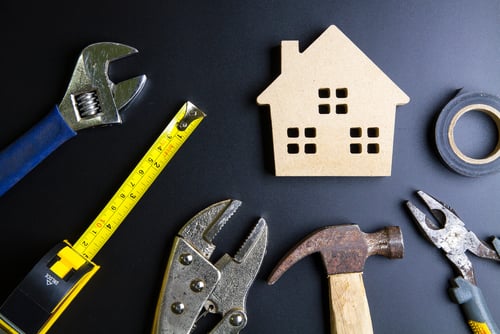
Maintenance repairs present an inconvenience for both landlords and tenants. As such, preventative maintenance tasks are essential to preventing costly and frustrating repairs. But when it comes to the lease, who is responsible for what? Not clearly outlining tenant responsibilities for maintenance from the start can lead to disputes and even more headaches than the repair itself. So, continue reading below as we discuss maintenance responsibilities for tenants and what landlords need to do to hold up their end of the lease contract.
Maintenance Responsibilities for Tenants
Every tenant wants to reside in a well-maintained and safe rental home. That said, the effort is not the sole responsibility of the landlord. When a tenant signs a lease, they accept that some maintenance tasks will fall on them to complete. Therefore, it is important to carefully read your lease and address any questions with the landlord before moving in. With that in mind, let’s review some of the common maintenance responsibilities for tenants below.
Follow All Housing and Occupancy Codes
The tenant has a responsibility to comply with all local codes and occupancy standards – as well as with their lease. For example, most locations have a standard of no more than 2 occupants per bedroom. So, overloading the rental with frequent or long-term houseguests not listed on the lease is not an option. In addition to higher utility rates and more wear and tear on the unit, unauthorized occupants can present a potential fire or safety hazard.
 Maintain a Sanitary Environment
Maintain a Sanitary Environment
It should go without saying, but one of the most important maintenance responsibilities for tenants is maintaining a clean home. Unsanitary conditions not only threaten the health of occupants but can also damage the unit itself. Additionally, discarded food, trash, or debris can draw insects and rodents, which creates a whole new problem. Also, built-up clutter can disguise maintenance issues brewing underneath, which delays repairs and leads to more costly damage. Therefore, tenants must maintain a clean and sanitary home.
Keep the Property Free from Safety Hazards
In addition to the sanitary conditions discussed above, tenants must avoid creating a safety threat to themselves or the property. Some common issues landlords find include –
- Tenants blocking emergency exits with personal items or clutter.
- Leaving personal items too close to essential equipment such as the water heater, shut-off valves, or breaker box.
- Tenants removing or tampering with smoke detectors or carbon monoxide detectors.
These items can cause unnecessary risk for tenants and potential liability for landlords. Therefore, tenants need to be aware of safety concerns and protect themselves and the home.
 Promptly Report Maintenance Issues
Promptly Report Maintenance Issues
One of the simplest maintenance responsibilities for tenants is to report any repair needs or concerns to the landlord promptly. Keep in mind, as a tenant, you are in the home every day, and the only way a landlord will know there is a problem is if you tell them. Also, a landlord could hold a tenant responsible for failing to report any issues that result in further, more extensive damage. Thus, it is better to be safe than sorry. So, report any concerns or repair requests as soon as they are noticed.
Seasonal Maintenance
Typically, in a single-family property, tenants are responsible for seasonal maintenance. In multi-family buildings, the landlord usually takes care of this, but it is important to confirm before signing the lease. Some of the common seasonal maintenance tasks include, but are not limited to –
- Keeping the grass cut
- Cleaning up leaves and debris from around the exterior
- Shoveling snow off driveway or sidewalks
- Spreading salt for icy conditions as needed
 Additional Maintenance Responsibilities for Tenants
Additional Maintenance Responsibilities for Tenants
Apart from the maintenance responsibilities for tenants above, a renter must do a few more things. That said, all of the tasks below address protecting the property and its major systems. So, let’s examine these tasks more in-depth.
- Do Not Damage the Unit – Landlords expect normal levels of natural wear and tear. However, remember that move-in and move-out inspections will determine excessive tenant damage that could result in the withholding of the security deposit.
- Use Appliances Properly – Occupants must keep appliances clean and avoid grease or food to build up on surfaces. Also, tenants should use appliances for only their intended purpose to avoid potential damage.
- Protect Plumbing Fixtures – Grease, soap scum build-up, or washing foreign items down the drain can damage vital plumbing. Therefore, tenants must ensure this does not happen, and plumbing remains in good working order.
- Prevent Mold Growth – When a leak occurs or excess moisture is allowed to build up, mold can inevitably take hold. That said, tenants can take steps to avoid moisture build-up, and if leaks occur, they must notify the landlord right away.
- Do Not Disturb Potential Lead Paint – Homes built before 1978 may or may not have lead paint. Typically, property owners must test for this before move-in and disclose any potential risks. However, that is not true for every jurisdiction. So, tenants living in older homes must be diligent not to disturb any surfaces that may contain lead paint hazards.
What are a Landlord’s Property Maintenance Responsibilities?
Landlords renting a property to a tenant have certain responsibilities under the law to provide a safe and habitable home. Therefore, to avoid property damage, potential disputes, or costly litigation, ensure you complete all landlord maintenance tasks per the lease. Continue reading below for our list of the most common landlord responsibilities.
Comply with All Building Codes and Laws
All property owners must provide a safe and habitable home. Part of this means complying with all applicable building codes to ensure a healthy environment. Some of these requirements include –
- Installing smoke and carbon monoxide detectors
- Ensuring the structural integrity of the property
- Promptly address safety issues (example: broken stair railing, tripping hazards, malfunctioning outlet)
- Prevent or treat mold issues
- Quickly address pest infestations
- Disclose or make safe any lead paint or asbestos materials in the home
 Ensure Vital Services are in Working Order
Ensure Vital Services are in Working Order
Every tenant is entitled to certain vital services, including access to water, working plumbing fixtures, and a functioning water heater. In addition, the tenant must have access to working utilities such as heat, electric, and gas services. That said, if the tenant is responsible for paying the utility bills, it is their obligation to keep them on. First, landlords must ensure that all appliances, electrical, and plumbing components are in working order.
Supply Proper Trash Receptacles
Removing trash from the rental property helps maintain sanitary conditions and prevent pest infestations. The landlord must ensure there are trash receptacles on the property with tight-fitting lids. In addition, there should be enough receptacles to suitably hold the amount of trash produced based on the number of occupants.
Maintain Property Common Areas
If your rental property is a multi-family building, the landlord is responsible for maintaining all common areas. This may include tasks such as –
- Mowing and maintaining landscaping
- Snow removal and de-icing
- Ensure stair must have stable railings
- Maintain working lighting in entryways and hallways
- Ensure there are no tripping or safety hazards
 Perform Property Repairs
Perform Property Repairs
All landlords need a surefire system for handling maintenance and repair requests. Property owners must address tenant concerns quickly. Not only does this foster a good landlord-tenant relationship, but it also protects your property from further damage. So, keep a list of quality vendors on hand and address all basic repair needs within 24 to 48 hours. For larger jobs, getting the best contractor out to complete work may take longer, but always keep the tenant informed. Also, if the repair need resulted from tenant neglect or misuse, landlords can seek reimbursement.
No matter what, landlords are responsible for some maintenance tasks in and around the rental property. In fact, it is illegal for landlords to attempt in a lease to make tenants responsible for all repairs. So, it is best to set aside ample savings to ensure you can handle preventative maintenance needs and any unexpected repairs.
The Simplest Way to Address Rental Maintenance
Whether dealing with maintenance responsibilities for tenants or your own as a landlord, managing a rental property takes a lot of work. One of the simplest and most efficient ways to handle the rigors of owning investment property is to hire a qualified property management firm. These professionals assist owners by overseeing all daily operations, including maintenance and repair tasks. Thus, allowing owners to have a buffer between tenants and the freedom to carry on with other personal responsibilities.
Bay Property Management Group is the area’s leading expert on all things property management. With access to an extensive list of trusted third-party vendors, our staff of experienced managers can effectively tackle any tenant repair call. So if you are interested in learning more about the benefits of full-service property management, give us a call today.

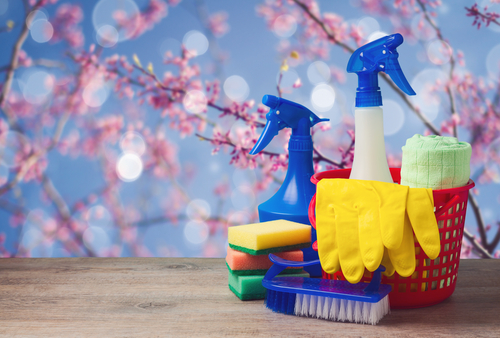 Maintain a Sanitary Environment
Maintain a Sanitary Environment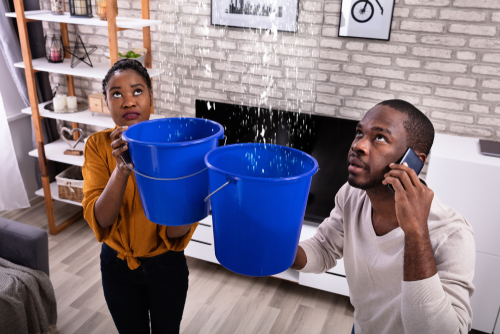 Promptly Report Maintenance Issues
Promptly Report Maintenance Issues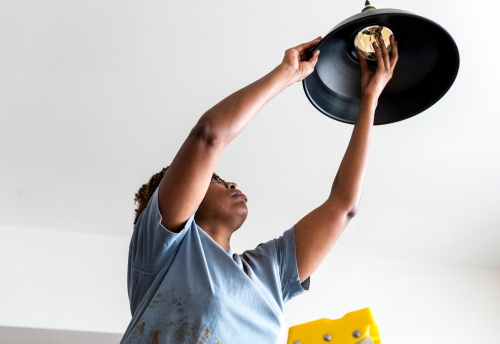 Additional Maintenance Responsibilities for Tenants
Additional Maintenance Responsibilities for Tenants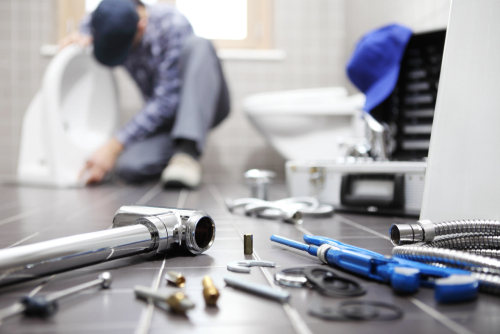 Ensure Vital Services are in Working Order
Ensure Vital Services are in Working Order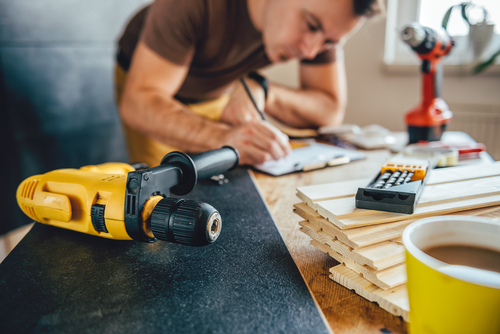 Perform Property Repairs
Perform Property Repairs